Small Business (Part 1) - From Employee To Employer
Starting your own business is in some ways a culmination of all the other gameplay mechanics. In a business you will have jobs to work, utilities to pay, assets and floorspace to manage, a premises for it to occupy, industry profitability to consider, and so on.

A small business is centered around the "job hour". This is the expected time it takes to complete an hour of work for a given job. Job hours are generated at the start of each month depending on demand for your product or service.
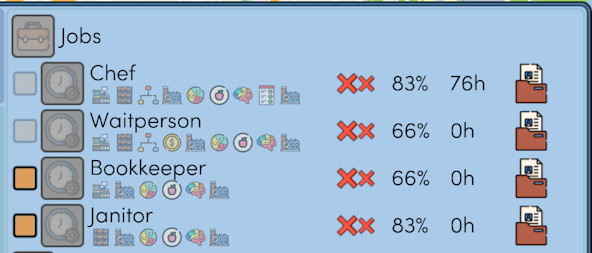
For example, let's say you're running a restaurant and have 75 job hours of chef work this month. If your character or a staff member works at 50% efficiency (due to low skill or not enough cooktops), then they will take 150 actual hours to complete the work. When working for someone else this terrible inefficiency doesn't matter, but when it's your own business then this affects profits!
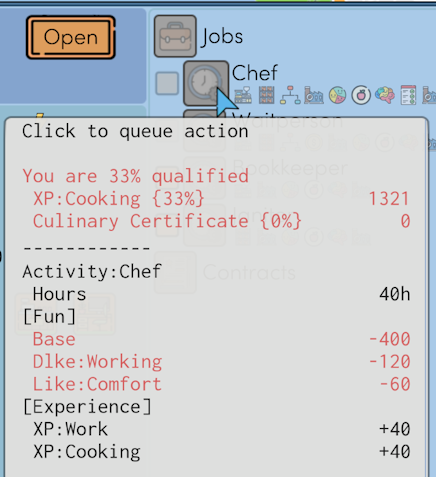
Jobs in a business work similarly to the normal ones you would do as an employee. Your characters require the same qualifications, gain the same experience, feel the same love/hatred based on their preferences and the asking wages of staff are affected by industry inflation.
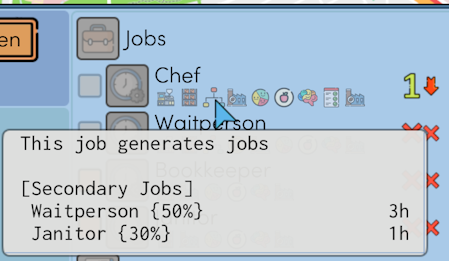
Some jobs generate other jobs. A chef produces meals to be served and makes a big mess in the kitchen, so will generate waitperson and janitor jobs.
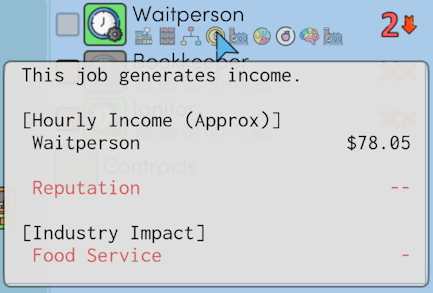
Some jobs generate income, and these are the most important to complete. They pay for everything else in the business, so if you don't do them then you don't make money! In a small restaurant this would be the waitperson who gives people their bills.
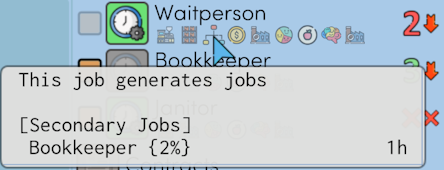
But that's not all, the waitperson also generates bookkeeper jobs! These are unrelated to the food industry, and yet they need to be done to efficiently manage the restaurant. You can start to see how the chain of job generation can become complex and allow for flexibility to accommodate different business types.
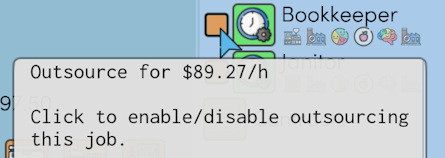
There's not enough work to employ a full-time bookkeeper at a small restaurant, so one option is to outsource it. An outsourced job will have its hours completed without requiring you to have the necessary assets, inventory or staff, but it's very expensive. Of course, your character could always do the bookkeeping themselves (assuming they're not allergic to paperwork).
Hiring Staff
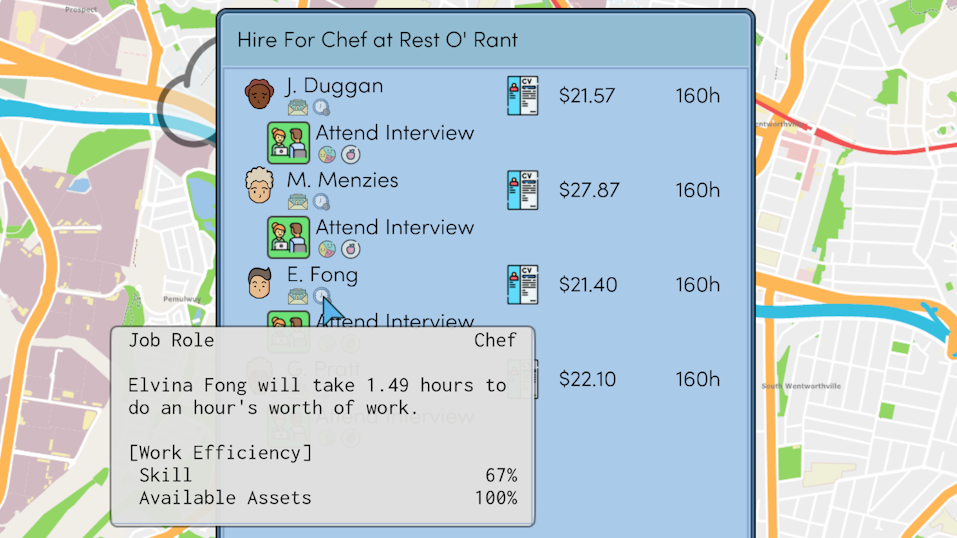
When your business gets busy enough, you can hire employees to help complete job hours. Each employee comes with their own experience statement and gain XP as they work, just like your characters.
Naturally, you'll have to pay experienced staff more than junior staff. Some are willing to work full-time while others are looking for part-time work. It's up to you to decide who is the best fit for your business.
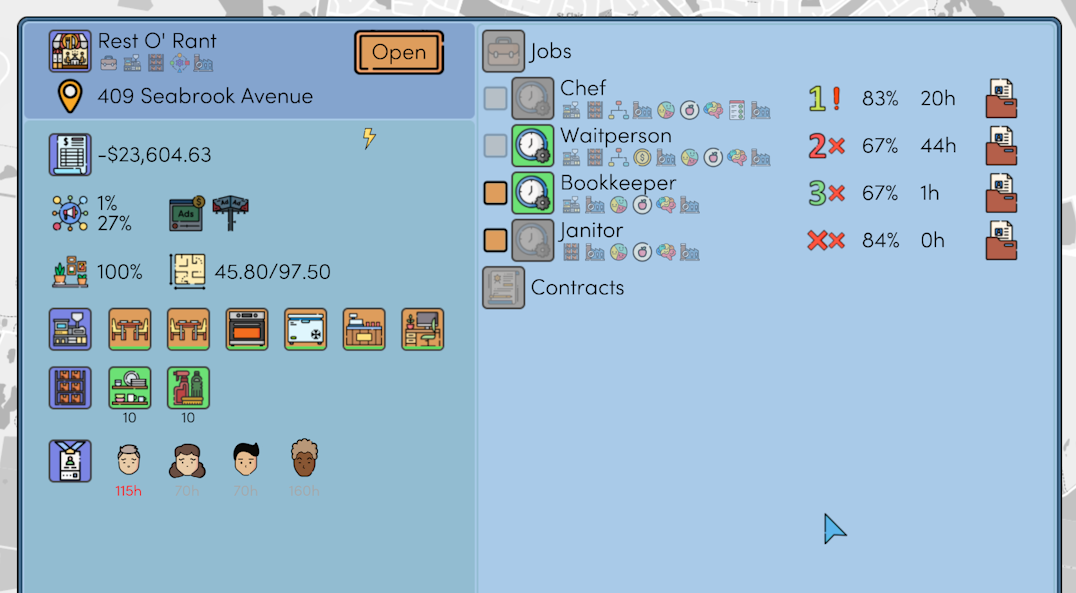
Hopefully I've explained this well enough to make sense so far. In the future I'll talk about contract work for businesses, which stacks on top of this job hours system and allows the aspiring entrepreneur to make (or lose) even more money.
Get This Grand Life 2
This Grand Life 2
A money-focused life simulation with a deep economic system.
| Status | In development |
| Author | PokingWaterGames |
| Genre | Simulation, Role Playing |
| Tags | 2D, Economy, finance, Life Simulation, Management, Moddable, Modern, Strategy RPG, Tycoon |
More posts
- This Grand Life 2 launches into Early AccessJun 20, 2024
- Story Time - Mr. Jamali And His BarMay 25, 2024
- Design Talk - Deciding City PoliciesMay 15, 2024
- Managing Household Relations And Incompatible PersonalitiesMay 02, 2024
- The Schooling System And Teenage Mood SwingsApr 12, 2024
- Modding - Mafia Loans, Child Workers And MoreMar 21, 2024
- Early Access Date and Other AnnouncementsFeb 29, 2024
- Map Modifiers - Government Policy And Local IndustryJan 27, 2024
- Emergent Storytelling - The Life Of Paddy and LivDec 23, 2023
- Small Business (Part 3) - Building Awareness And ReputationNov 27, 2023
Leave a comment
Log in with itch.io to leave a comment.